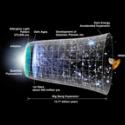More has been learned about the origin and structure of the cosmos in the last century than in the entire history of humanity. And new discoveries are made constantly, thanks to the skills of the international science community and the great technological advances that make it possible to probe the universe. Here are SftPublic lectures and conversations on leading areas of investigation.
SftP Videos: Cosmos
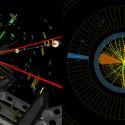
A Front-Row Seat at the Big Bang: The LHC at CERN
01/25/11 The Large Hadron Collider probes the most fundamental level of nature.......... Steven Nahn

Are We Alone in the Universe?
07/25/23 For centuries, we Earthlings have considered ourselves unique in the universe. Scientists today, however, tend to doubt our exceptionalism. But just how common might intelligent life be? Mario Livio
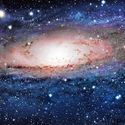
Astrophysics Knowns and Unknowns
12/20/16 A guide to fundamentals of astrophyics at a time of many exciting --and sometimes puzzling-- discoveries. Priyamvada Natarajan
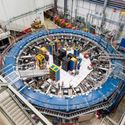
Beyond the Standard Model? The Latest from Fermilab
06/07/21 A discussion about the recent Muon g-2 experiment at Fermi National Accelerator Laboratory (Fermilab) and also Fermilab's work on the upgrade of the CMS project at CERN. Steve Nahn and James Mott
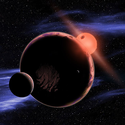
Big Science from Little Stars
07/19/11 Red dwarfs provide vital information about galaxy evolution... Andrew West
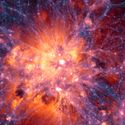
Cosmic Evolution
12/09/14 From the beginning of the universe to complex life: an explanation of the development of the cosmos. Eric Chaisson
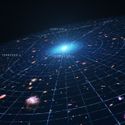
Dark Energy and the Cosmic Expansion
12/14/21 The Dark Energy Spectroscopic Instrument (DESI) is the most advanced probe of the relationship between dark energy and the expansion of the universe. A unique project in astronomy. Arjun Dey
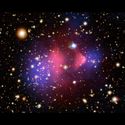
Dark Matter and Other Cosmic Mysteries
02/15/18 New insights about dark matter, primordial black holes, and gravitational waves. Julian B. Muñoz
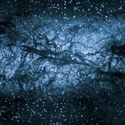
Dark Matter in the Universe
09/28/10 Some mysterious, invisible stuff is holding galaxies together. Peter Fisher

Einstein's Relativity
11/22/10 Einstein completely changed our understanding of the universe. Here's how. Tereasa Brainerd
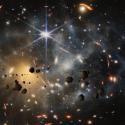
Elusive Dark Matter and the Earliest Galaxies
10/23/24 The James Webb Space Telescope (JWST) and other advanced technologies are providing unprecedented data about the early universe. Astronomers are developing a new understanding of how the earliest stars and galaxies emerged. Julian Muñoz
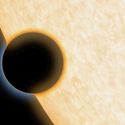
Exoplanet Atomospheres
12/02/14 How do scientists investigate exoplanet atmospheres --and what are they discovering? Mercedes Lopez-Morales
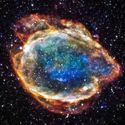
Explaining and Measuring the Expanding Universe
08/28/20 The universe is expanding at an incredible rate, and dark energy is thought to be the cause. Astronomers observe and measure this mystery with very sophisticated equipment. Paul Martini
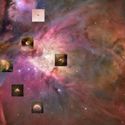
Formation and Diversity of Planetary Systems
11/08/21 Advanced technology reveals a super-abundance of planetary systems in the universe. And astronomers are investigating how these systems form as well as their amazing diversity. Joan Najita

Galileo and the Science Deniers
09/14/21 Today scientific information is available to all, yet misinformation and denialism abound. Galileo's famous struggle for truth centuries ago is highly relevant today. Mario Livio
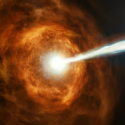
Gamma Ray Bursts
01/26/16 An explanation of the most spectacular explosions in the universe, and their possible impact on life. Raul Jimenez
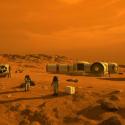
Going to Mars? Better Take Some Gravity
09/19/23 WGBH Forum Network webinar 11:30 EDT There is plenty of hype about space travel and even colonizing planets like Mars. We might need to know about the effects of zero-gravity on the human body. James Lackner
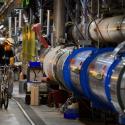
Great Expectations: The Large Hadron Collider 2015
11/05/14 When the LHC starts up again in 2015, what will scientists be looking for? .... Tulika Bose
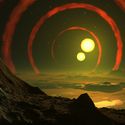
How Science Fiction Inspired Science
06/04/19 Professor and writer David Toomey explains the surprising connections between the realm of science fiction and science fact, especially the ways in which sci-fi anticipated discoveries in real science.
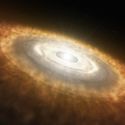
How Solar Systems Form: Puzzles and Possibilities
03/11/14 Astronomer Joan Najita explains the challenge of understanding how planetary systems are created.

How to Talk to a Science Denier
03/08/22 The right author and the right book with the right strategy for dealing with those who reject scientific facts. Lee McIntyre

I Wonder Why? Magic, Mystery and Mathematics in the Mundane
01/14/21 Mathematics is the foundation of everything in Nature: structures, dynamics, processes. Understanding that foundation changes our perception of Nature. Lakshminarayanan Mahadevan

Is Earth Exceptional?
02/18/25 Is there life beyond Earth? So far, despite the discovery that there are billions of planets in our galaxy, and our increasingly sophisticated probes for life, we still don’t know. Life and the conditions for its emergence are both very complex phenomena. Mario Livio
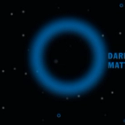
Light from Darkness? Searching for Dark Matter in the Sky
08/15/19 Dark matter is believed to comprise five-sixths of the matter in the universe, but cannot be "seen." Now, technical innovations offer closer observation and maybe new physics. Tracy Slatyer
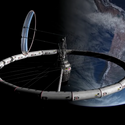
Living in Space: Artificial Gravity and Bioastronautics
01/04/21 The human body requires a gravity environment. So how do aerospace engineers plan for the colonization of space? Developing artificial gravity is a major objective. Ana Diaz Artiles
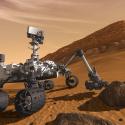
Looking for Signatures of Life on Mars
03/17/15 Was there ever life on Mars? How do scientists search for and analyze possible clues? Roger Summons
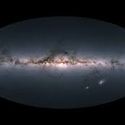
Mapping the Heavens
07/19/16 A look at how major ideas in science are often initially resisted, and a view of the invisible cosmos. Priyamvada Natarajan
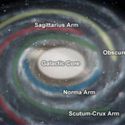
Mapping the Milky Way
02/13/13 An amazing 30+ year project and the discovery of two new Milky Way spiral arms. Thomas Dame
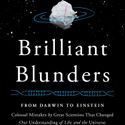
Mario Livio: His Astrophysics, His New Book (Brilliant Blunders), His Other Books
09/25/13 Astrophysicist and popular science author, Mario Livio, talks about his science, his writing, and his passion for art

Massive Galaxies: Where and How They Form
04/14/2014 The investigation of how super-galaxies form is expected to provide insight into other mysteries such as dark matter and dark energy. Arjun Dey

Mathematics and the Multiverse
05/20/14 Max Tegmark discusses the topic of his book: the multiverse and the mathematical nature of reality.
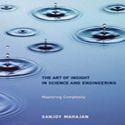
Natural Mathematics: Intuition and Insight
08/19/14 A visionary approach to teaching, learning --and discovering-- mathematics. Sanjoy Mahajan
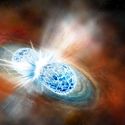
Neutron Stars and Gravitational Waves
03/08/21 Gravitational waves produced by colliding neutron stars are providing unique information about the universe. Edo Berger
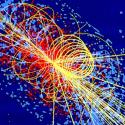
New Directions in Particle Physics
06/18/24 WGBH Forum Network webinar. CERN’s Large Hadron Collider has made very significant discoveries (including the Higgs boson), but physicists now need to expand the probe. Tulika Bose
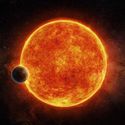
Odd Couple: UV Radiation and the Origin of Life
11/28/17 A very exciting investigation of the possible role of ultraviolet radiation in the emergence of life --on Earth and elsewhere. Sukrit Ranjan

Origami: Art and Science
09/08/15 Mathematician L. Mahadevan describes how nature, science and art intersect. It will change your entire perspective.
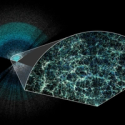
Our Expanding Universe: The DESI Project's First Results
05/14/24 WGBH Forum Network Webinar. The Dark Energy Spectroscopic Instrument (DESI), specifically designed to measure the universe's expansion, has now produced the largest and most precise 3D map for the expansion analysis. And the first results of the survey are amazing. Paul Martini
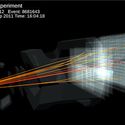
Physics Beyond the Standard Model at the Large Hadron Collider
06/26/20 The particle collisions at the Large Hadron Collider represent a search for a new physics in the form of new particles or forces that account for unknowns about the cosmos. Markus Klute
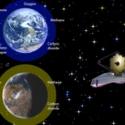
Probing Exoplanet Atmospheres
05/08/17 A description of exoplanet atmospheres and how scientists attempt to analyze these alien atmospheres. Alexandria Johnson Alexandria Johnson
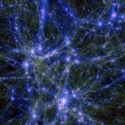
Probing the Large-Scale Universe
01/19/2016 Deep cosmic surveys hope to explain the mysterious accelerating expansion of the universe. Licia Verde
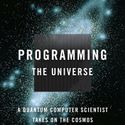
Quantum Computing, Quantum Biology
12/01/15 An exploration of the quantum realm in computation, the cosmos --and biology. Seth Lloyd
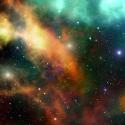
Reconstructing the Evolution of Stars
01/24/17 How astronomers read the evolution of the universe through the chemistry of the stars. Robert Simcoe
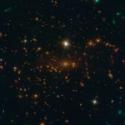
Reconstructing the Inaccessible Cosmic Dawn
12/06/22 The only way to understand the emergence of the earliest structures in the universe is through complex computer simulations. Here's how they are created and tested. Mark Vogelsberger

Renaissance Roots of Modern Science
03/06/12 From astrology to astronomy, from superstition to empirical investigation....... Toby Lester
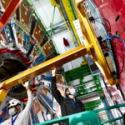
Run 3 at the Large Hadron Collider (LHC): What's the Excitement?
08//23/22 There is much anticipation about the LHC Run 3 that is now underway. What will the newest technical expansion of the LHC reveal? Markus Klute
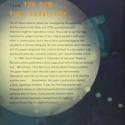
Science Speculations: Time Travel
03/15/18 How realistic is the time-travel concept and how would time machines work? David Toomey
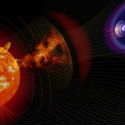
Solar Magnetic Storms and Space Weather
03/13/13 How the Sun's magnetic storms can affect electric grids and electronic communications. Jeffrey Hughes
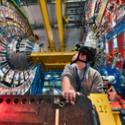
The 2016 Large Hadron Collider Update
11/07/16 The latest news from this year's exciting work at the Large Hadron Collider in CERN. Tulika Bose
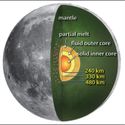
The Core of the Moon
05/09/12 Did the ancient moon have a magnetic field like Earth's? And why do scientists need to know? Benjamin Weiss
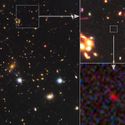
The Dark Age of the Universe
05/12/15 What scientists are learning about the "dark ages" of the early universe -before light emerged. Lincoln Greenhill
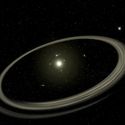
The Formation of Stars and Planets
09/15/15 How stars and their planetary systems form, and what the New Horizons mission to Pluto will reveal about the "fossil record" of our own solar system. Scott J. Kenyon

The Geometric Basis of Structure and Motion
11/13/18 Structures and motions are governed by geometric rules. Ileana Streinu and Ciprian S. Borcea
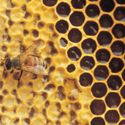
The Grand Geometry of Nature
09/18/12 As these mathematicians explain, with numerous examples, the deepest truths of Nature are mathematical. Tom Mrowka and Gigliola Staffilani

The James Webb Space Telescope (JWST): A New Era for Astrophysics
10/04/22 The most sophisticated telescope ever created is now producing its first deep-space images, revealing an astonishing universe. Silas Laycock

The Scientific Attitude
06/11/19 Author and philosopher Lee McIntyre discusses his newest book, The Scientific Attitude, and some of his earlier works. A timely subject!

The Social Context of Science
01/13/15 How culture influences science and why we should be aware of that relationship. David Kaiser
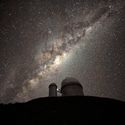
The Tumultuous Milky Way and Its Satellite Galaxies
08/23/11 How do spiral galaxies like our Milky Way form? Elena D'Onghia
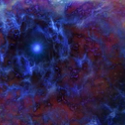
They Didn't Believe It! Dark Matter
12/02/19 Most of the matter in the universe is invisible --and scientists still do not know what it is. This is a brief story of how the idea of dark matter was very slowly accepted.

They Didn't Believe It! The Atom
11/07/19 Science for the Public mini-series : They Didn't Believe It! Brief stories about science discoveries that were very slow to be accepted

Two Paul Steinhardt Projects: The "Cyclic Universe" and "Quasicrystals"
04/30/13 One of our foremost physicists discusses two projects: the cyclic universe and quasicrystals
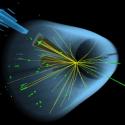
Update from the Large Hadron Collider: The Higgs?
09/11/12 Confirming the Higgs boson is one of the great triumphs in the history of science. Steve Nahn

Using Gravitational Lensing to Detect Dark Matter
01/14/25 Dark matter accounts for some 27 percent of the universe but is invisible. One promising technique to reveal it is the analysis of gravitational lensing that very occasionally aligns galaxy clusters. Jacqueline McCleary

What Mathematicians Reveal about Gerrymandering
10/25/17 Finally, an explanation of how voting districts can be unfairly sliced and diced. Justin Solomon
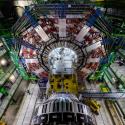
What's Happening at the Large Hadron Collider
12/11/18 The 2018 update on the work at the Large Hadron Collider. Markus Klute

What's Up at the 2015 Large Hadron Collider
10/27/15 A report on the 2015 experiments at the Large Hadron Collider, now at unprecedented 13 TeV energy. Tulika Bose

